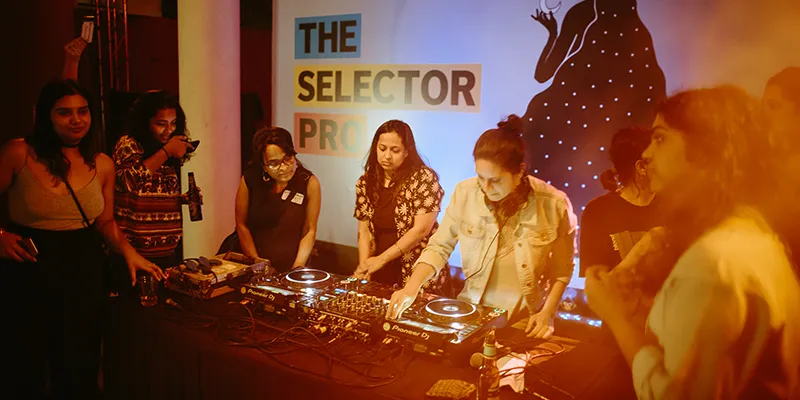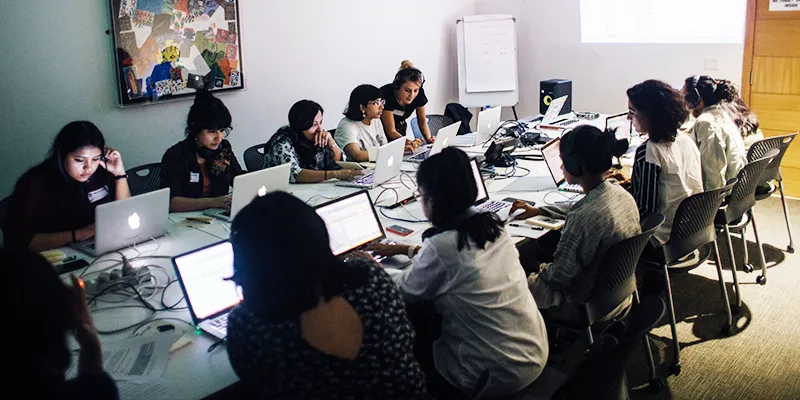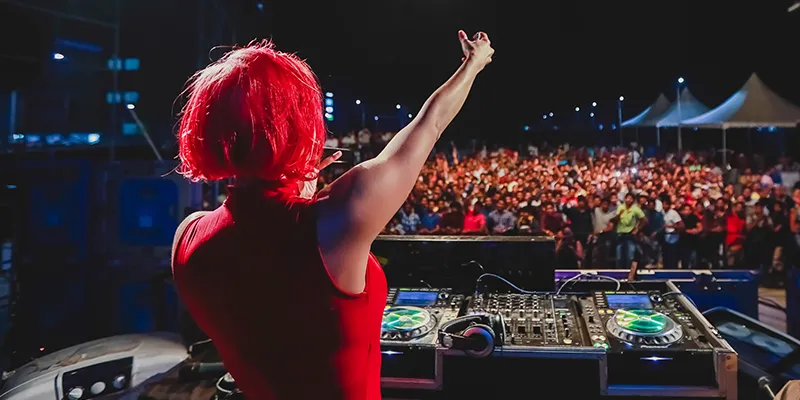Books have been written, endorsements have been announced, and a documentary about the profession has just been released. Women DJs are being welcomed with open arms by peers. That does not mean that all is well in their world; challenges remain and must be dealt with...
“I am a DJ, not a female DJ,” says DJ Kini Rao, who is based in Mumbai and specialises in electronic music. “Skill is skill - whether you are a female or male.” Her videos on YouTube are devoid of the usually misogynistic comments, and most are restricted to her work.
Early this year, The Wild City, an online music magazine and community and the British Council India organised an initiative to support skill development for women in the music industry. DJ Kini conducted one of the workshops, and says, “The workshops had 20 students each and the batches were full.”
Female DJs are on the rise, and come from various communities, cities, age-groups. This can be gauged from the vast number attending workshops, and even taking online tutorials.
KD, who teaches DJ-ing at the True School of Music in Mumbai says the number of female students in his course is growing. The youngest in his batch, he says, was 10 years old.
Besides the Wild-City initiative, there are others in the music industry. The EQ way, started by Pooja Bangad and Neha Pardeshi (Nephra) brings talented women in the music scene together. “We want to bring women to form a collective so everyone could collaborate and grow,” says Pooja. "This, probably, is one industry that doesn't not discriminate fees based on gender. People get paid according to their talent, experience, and not their gender."

Women DJs in training (Photo credit: Zacharie Rabehi)
Most women YourStory spoke to say their male counterparts were encouraging, and termed the industry as ‘gender-neutral’ and ‘progressive’.
However, not all think so. A male DJ says, “Women DJs get paid more...40 to 60 percent more than a male DJ...You know what I mean?”
Playing to a stereotype
Chandigarh-based DJ Varnika says the independent music industry is usually progressive, but with commercial music, it’s still the old clichéd story. “In commercial music, there are many models who turn into DJs because they draw the crowd with their glamour quotient, but they don’t know their music.”
Vocalist Sandhya Visvanathan says, “There is a certain stereotype that exists when it comes to female DJs. You have to be glamorous, have a certain body type, etc. We need more diversity in female DJs.”
The diversity she speaks about was visible at the Magnetic Fields 2017, a popular EDM festival in Alsisar, Rajasthan, but even as conversations revolved around how female DJs and musicians performed, it was not entirely devoid of chatter about them.
There is another side as well – playing at a conservative college, DJ Olly Esse was asked to dress ‘conservatively’, something she says she didn’t mind.
DJ Kini adds that even though women performing in front of the camera, or before an audience, face a good amount of pressure, they need to see that the industry is accommodating.
Technology, comfortable atmospheres and peer pressure
KPMG’s first Global Female Leaders study says 77 percent of women see technology in the workspace as more of an opportunity than a threat. Yet, there are obvious stereotypes around women and technology.

A class in session for women DJs (Photo credit: Zacharie Rabehi)
Sarah Chawla from the Wild City says, “Stereotypes surrounding women and technology are definitely a barrier to engagement. A huge issue is that women don’t want to perpetuate stereotypes, so they are less likely to ask questions and for help in mixed gender learning environments. This has the potential to undermine the confidence of a beginner which is why female-only learning environments are really important and interesting.”
Besides learning environments, several galleries also offer artists a stage to showcase their talent. The Listening Room, and Powercut are two such - imagine an apartment and similar personal spaces that turn into performance areas. “If we have diverse performance stages like this, you will see more women performing as they will be more comfortable to put themselves out there,” says Sandhya.
Safety and security
Last August, DJ Varnika was stalked in an upmarket area of Chandigarh. Since then, she has moved from her music to activism.

DJ Olly Esse plays for her audience
On how she handled her safety and security when she played at clubs and private parties, she says, “Clubs always have bouncers. So, that can be dealt with. But at private parties, you would have some people trying to push you to play one more song.”
DJ Kini says that when she plays in a new city, or even a new location, she makes sure she has one of the promoters dropping her home. The onus of a female performer’s safety is on the management, but she adds it is essential to make sure your checks and balances are in place too.
“Security is always a potential issue or concern for a woman, whether you are attending events, or Djing. Transport, getting to/from a venue also plays a role in this,” says Sarah. “We need to make the nightlife industry safer and more inclusive.”


.png?format=auto&w=1920&q=75)




